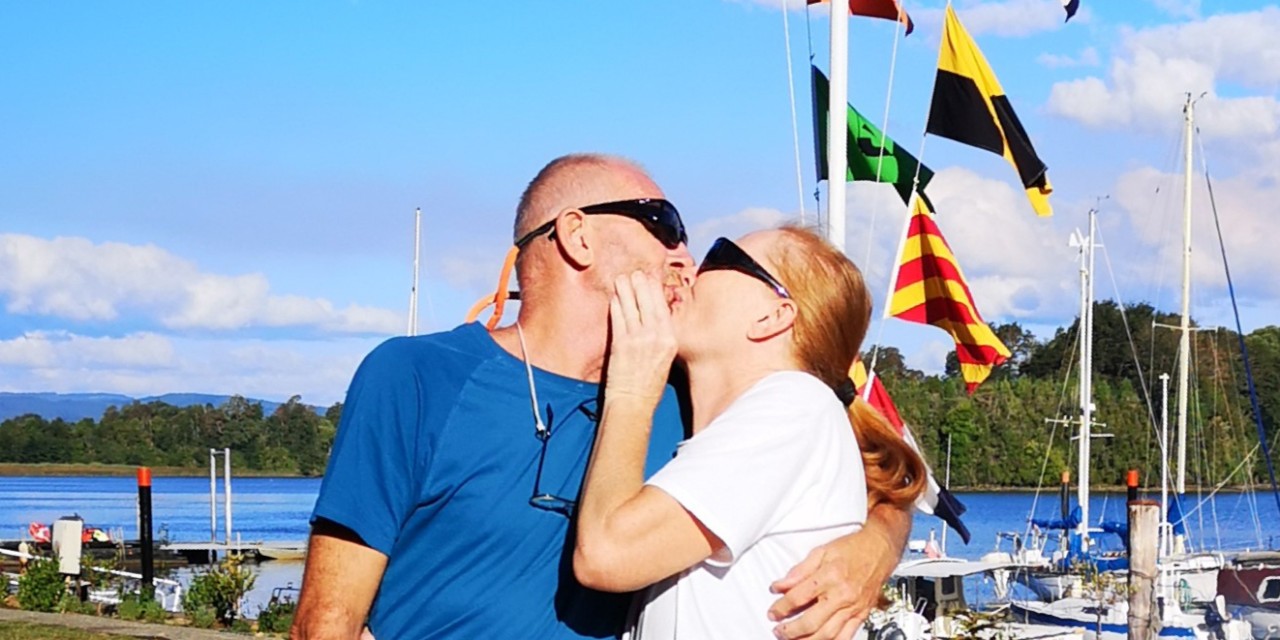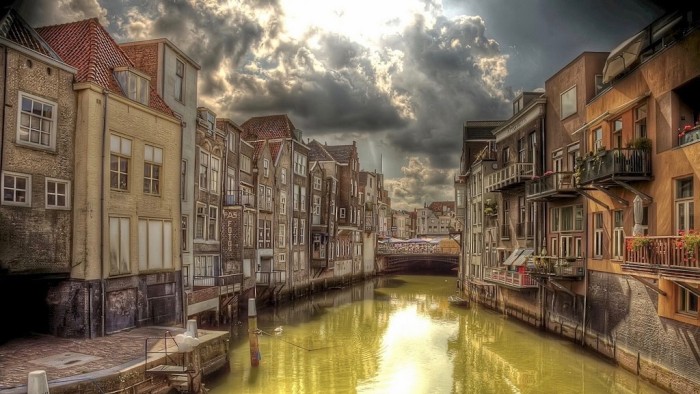I am visiting my mother in Holland. They tell me it is summer but the weather is cloudy, it rains from time to time and the temperature is under 20 degrees. Being an optimistic person I had not taken my winter clothes (woollen sweater, warm shoes, gloves, etc) with me. I travelled lightly this time. On my feet sandals without socks. I am freezing and long back to the warmth of the Curacao sun and of my wife's cuddles.
Public Transport in Holland is very good. Traveling by train is especially satisfying. I took the train from Schiphol to the little town in which my mother lives. Simple and fast, although to be honest, not cheap. Visiting old sailing-friends from my circumnavigation in the eighties was done by train as well. Even on Sunday evenings there are at least two trains an hour going back to the little town where my mother lives. There are more than nine million cars in the Netherlands but I didn't miss any of them (apart from Anke's electric car that picked me up at the station off course). The train passed all rush-hour traffic and queues, a big problem in this country, without problems or stops. I could enjoy the lush green landscape from my train window, so different from the dry yellow Curacao where Bengt is anchored at the moment. To visit a fellow JRSK-club (Round the World Sailing Club) member, 'schapenkop' like me, who had sailed to his old hometown I took the ferry over the river to Dordrecht which was fast and gave time for some sightseeing. Dordrecht is one of the oldest cities in the Netherlands and is sometimes called The Venice of Holland. The old city centre is beautifully restored and the marinas in the old harbours are very cosy. The view from the top of the tower of the 'Grote Kerk' is breath-taking. In the old days Dordrecht was a rich and important city but it had very high taxes. Everything coming through the city gates was taxed, even animals. A few clever citizens dressed a sheep in man's clothes to avoid paying tax for it and tried to smuggle it passed the guards. Unfortunately a dog scared the sheep which language didn't sound as that of a man at all thus the 'clever' citizens were exposed. From that day the nickname for citizens of Dordrecht became sheepshead 'schapenkop' and is mostly used in a non-flattering way.

Om the seventeenth of July it was five years ago that Ukrainian rebels shot down MH-17 from Malaysian Airlines which was carrying mainly Dutch tourists from Amsterdam to Kuala Lumpur in Malaysia. To this day it is still not clear who shot the plane down. The International Court of Justice in Den Haag has now published a list with names of four suspects of which Igor Girkin, leader of the pro-Russian rebels at the time of the attack, is the main suspect. Why a passenger plane was shot down is still unknown. Nobody has taken responsibility for the attack in which 298 people lost their lives. Nobody survived. There have been many rumours and speculations during the years but there will hopefully be a trial in the beginning of 2020 with the above mentioned Girkin as main suspect.
In newspapers, and on television, interviews with relatives of the victims who want somebody punished to be able to 'go on with their lives'. Somebody has to be put to trial, somebody has to be put behind bars, somebody has to take responsibility. In 'Algemeen Dagblad' of 15 July one could read an interview with the American rabbi Stephanie Bernstein who lost her husband in the Lockerbie bombing of 1988 (a bomb exploded on an American passenger plane above the Scottish village of Lockerbie killing all onboard as well as several inhabitants of Lockerbie when the plane crashed in the middle of the village). Rabbi Bernstein talks about punishment before a judge but also by God. To show forgiveness and mercy is 'repulsive' and 'offending' according to the rabbi who 'vomits' on Minister of Justice MacAskill who is mentioning forgiveness and mercy so it is easier to 'get on with one's life'. It seems that many relatives have stopped going on with their lives after the day of the attack which has subsequently become their 'meaning of life'. We don't learn to cope with this type of calamities in for example school so the most primitive part of our brain takes over. Religion is all about love but rabbi Bernstein doesn't seem to have understood that. Maybe newspapers and television programs are not so interested in people that 'got on with their lives' and experienced the feeling of forgiveness and mercy and because of that felt Love. That kind of Love is obviously not attracting viewers or readers.
Forgiveness is also a part of Christianity; it is a part of Love. We forgive when we let go of our negative thoughts and stop feeling that we want revenge. The Bible talks about needing Love to be able to forgive and show mercy. The way we act in life is 95 % based on fear and is tied to man's cronical diseases Teomania and Megalomania so it easily becomes a 'we' against 'them'. Off course the shooting of the MH-17 has to be investigated and the responsible persons brought before the International Court of Justice in Den Haag. The Bible mentions that God doesn't forgive people who have committed terrible crimes if they do not admit to their deeds and beg for forgiveness from those they have caused suffering. In this case nobody will admit anything or beg for forgiveness and say 'sorry'. Is it possible to assimilate this terrible calamity and the feelings it stirs up without anybody taking responsibility or say sorry?
Don't think I have become religious and have started reading the Bible, modern psychology comes to exactly the same conclusions but without Bible citations. Mankind is, as I have written before, not the cleverest creature walking around on this planet. We are easily deceived by, for instance, easy solutions but do not understand that they stay on the surface. To free ourselves from negative emotions and feelings we have to stop letting events and people hurt us. The Bible gives good advice in Psalm 37:8; 'Abandon rage'. One doesn't have to turn a blind eye to things that have happened but one can refuse to let anger take control. Maybe rabbi Bernstein should read the Bible more often.
"Out beyond ideas of wrongdoing and rightdoing there is a field. I'll meet you there. When the soul lies down in that grass the world is too full to talk about."
- Rumi







